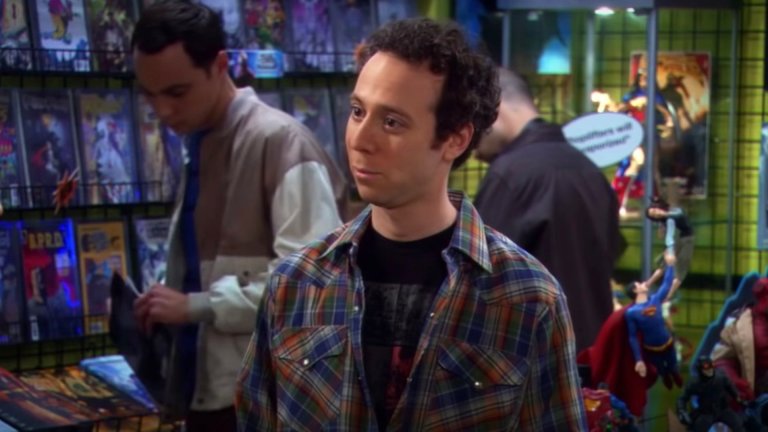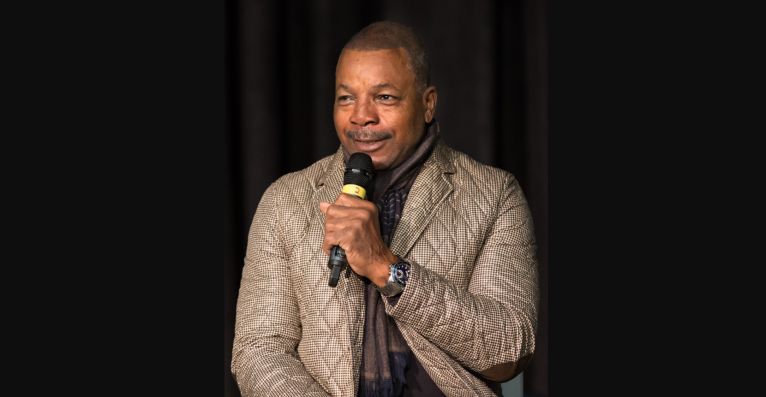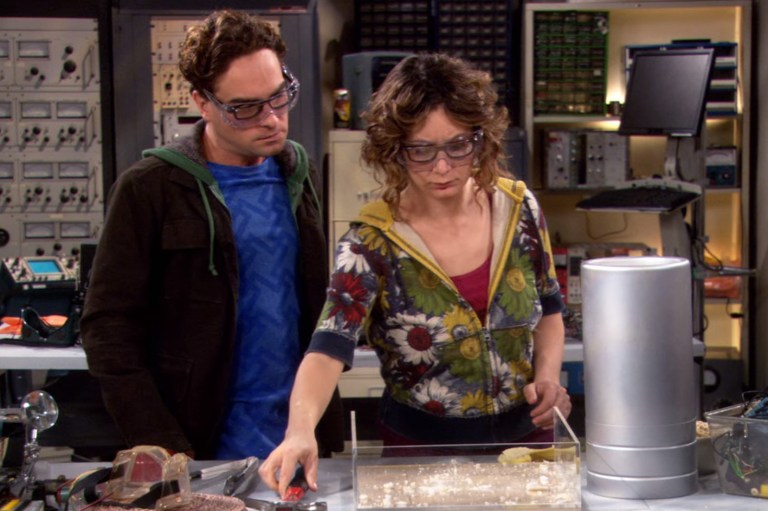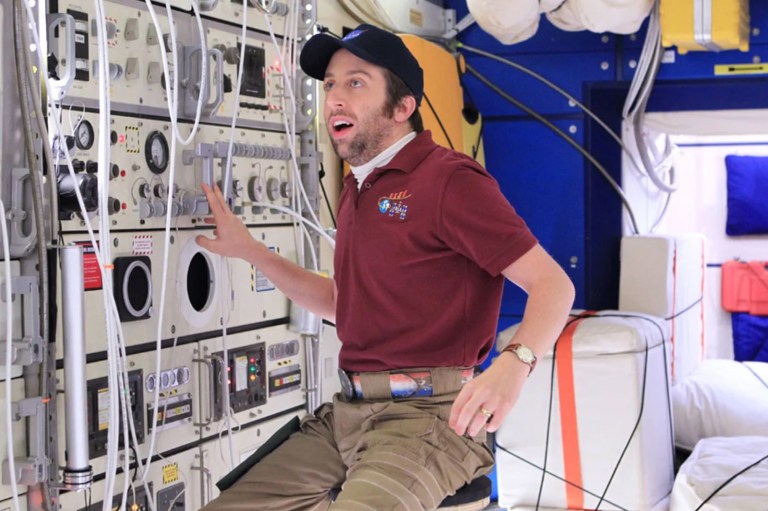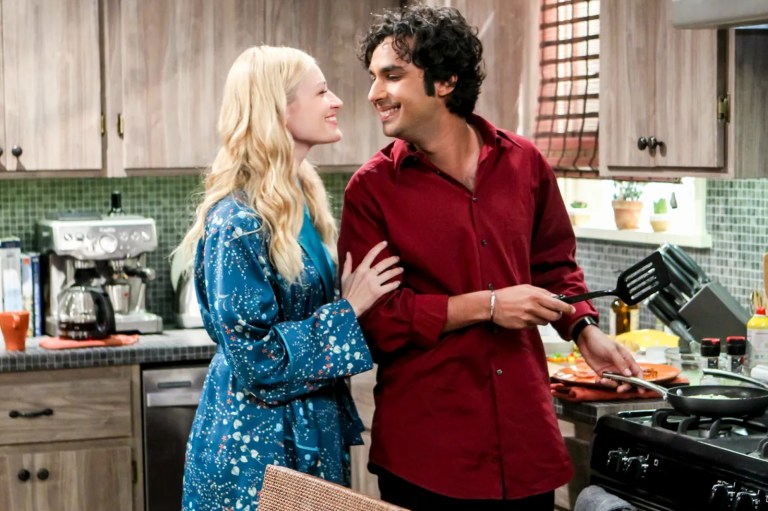
How ‘The Big Bang Theory’ Let Its Most Interesting Arcs Fade Out
From fizzled romances to dropped rivalries, here are some of the arcs that deserved more than a quiet fade into sitcom oblivion.
By ![]() Mishal Zafar
Mishal Zafar
The Big Bang Theory may have started with a bang, but some of its best storylines barely got a whimper.
For twelve seasons, we welcomed Penny, Sheldon, Leonard, Raj, and Howard into our living rooms. The Big Bang Theory somehow turned physics nerds into prime-time darlings and burned “Bazinga!” into pop culture forever. But something always felt off about the show’s handling of character development. The writers dangled fascinating storylines in front of audiences, then yanked them away just when things got interesting. It was a show that hinted at real depth but usually settled for the easy laugh instead. Here’s a look back at some abandoned arcs that deserved better treatment.
Howard’s NASA Career
When Howard blasted off to space, it should’ve been his defining moment. The guy literally left Earth. But after a few episodes, his incredible achievement basically turned into an occasional punchline rather than the career-defining moment it deserved to be. They could’ve taken Howard in so many fascinating directions – consultant on secret projects, mentor to young engineers, invited speaker – anything but right back to square one.
Raj’s Love Life
Raj’s character got particularly rough treatment. His selective mutism around women started as both a comedic device and a genuine character obstacle. Then poof – problem solved with barely a mention of how he overcame it. No therapy journey, no gradual improvement, just “fixed” when the writers got tired of the gimmick. What really stung was how Raj’s love life kept circling the same sad pattern. He wasn’t just another guy looking for love — he needed it. That longing sat at the core of who he was. From the very beginning, the show painted him as the romantic, the dreamer. And just when it felt like he was finally about to find something real, the story would collapse beneath him. Over and over. Like clockwork. A flicker of hope, then nothing.
Remember Emily? Lucy? Claire? Each woman seemed like a turning point, a chance for Raj to grow. But the story never let him. He’d fall fast, repeat the same emotional stumbles, and end up heartbroken, waiting for the next letdown. It stopped being endearing and started to feel cruel. By the finale, he was still alone, not by choice, but by design. What could’ve been a thoughtful arc about dating anxiety and cultural pressure turned into something far less kind — a long-running joke that had long since lost its charm.
Penny’s Acting Dreams
Penny’s acting ambitions drove the early seasons – all those failed auditions, the embarrassing commercial, that awful gorilla movie. Then suddenly, the writers got bored with the struggling actress angle and shoved her into pharmaceutical sales. The real problem wasn’t Penny changing careers; it was how The Big Bang Theory just brushed it under the rug. There was no deep dive into what it felt like for her to give up on something she was so passionate about. They completely missed a chance to show us those tough moments when dreams hit reality. Imagine the potential for a really relatable story about the heartbreak of letting go, or the quiet resilience it takes to choose a stable path over a creative one.
Instead, they just mined it for cheap laughs about her income versus Leonard’s. Her entire progression, from a starry-eyed aspiring actress to a successful (but seemingly uninspired) pharmaceutical rep, deserved so much more than a simple “hey, she’s good at sales!” Her creative side just poofed, replaced by endless wine gags and her typical eye-rolls at the guys’ nerdy antics.
Leonard and Leslie’s Academic Rivalry
Remember Leslie Winkle? Sara Gilbert’s sharp-tongued physicist who could make Sheldon’s eye twitch with a single sentence? Every time they shared a scene, it snapped with tension. Not the romantic kind — intellectual friction. Leslie had her methods. Sheldon had his. Neither would budge. Instead of tiptoeing around his arrogance like everyone else, she cut straight through it. No reverence, no pedestal. If he claimed a theory, she made him prove it. That’s what made her so essential. She didn’t just challenge him—she made the science matter more. Their rivalry wasn’t just fun to watch; it raised the bar. And let’s not forget her messy past with Leonard – that just added another layer of awesome tension to everything.
Then, gone without explanation. Her character simply stopped appearing when the writers apparently couldn’t be bothered developing her further. There was so much potential in that rivalry. Imagine them forced to team up on a major research project, clashing over ethics, or battling quiet professional envy. It could’ve gone anywhere. The show sorely needed more women in science who weren’t just love interests or background players. Leslie could easily challenge the guys on their own turf. She embodied everything the show claimed to champion: smart women shaking up the system. And yet, they let her slip away like she never mattered.
Stuart’s Potential as a Smart, Talented Artist
Stuart started as something genuinely interesting – a talented artist whose dreams had led him to running a comic shop instead of creating his own work. Remember his art show in the early seasons? The glimpses of real talent and thwarted ambition? Then the writers apparently decided “depressed guy” was his only necessary trait. They could’ve explored the creative struggle, the commercial versus artistic tension every creative person faces. Instead, Stuart devolved into an increasingly sad-sack character defined entirely by his loneliness and failure. His store burned down in what could’ve been a phoenix moment – a chance for reinvention or finding a new path. But no, they rebuilt the identical store and kept Stuart trapped in exactly the same role. Kevin Sussman brought subtle depth to the character that the writers completely wasted, preferring to mine his depression for increasingly uncomfortable laughs rather than giving him any meaningful growth.
The Comic Book Store’s Cultural Moment
The comic shop should’ve been the perfect setting to comment on geek culture’s explosion into the mainstream. During the show’s run, comic properties went from niche interest to global entertainment blockbusters. This offered golden opportunities to explore changing fan demographics, corporate takeover of beloved properties, and tensions between gatekeeping old-school fans and newcomers. Stuart’s struggling store made no sense in an era when comics were suddenly cool. The writers could’ve shown a small business either adapting to dramatic cultural shifts or fighting against them. The constant mentions of the store’s financial troubles while it somehow stayed open created a weird logical gap rather than meaningful commentary on small business challenges. By the end, the once-promising setting had become merely a convenient backdrop, its storytelling potential as neglected as Stuart himself.
